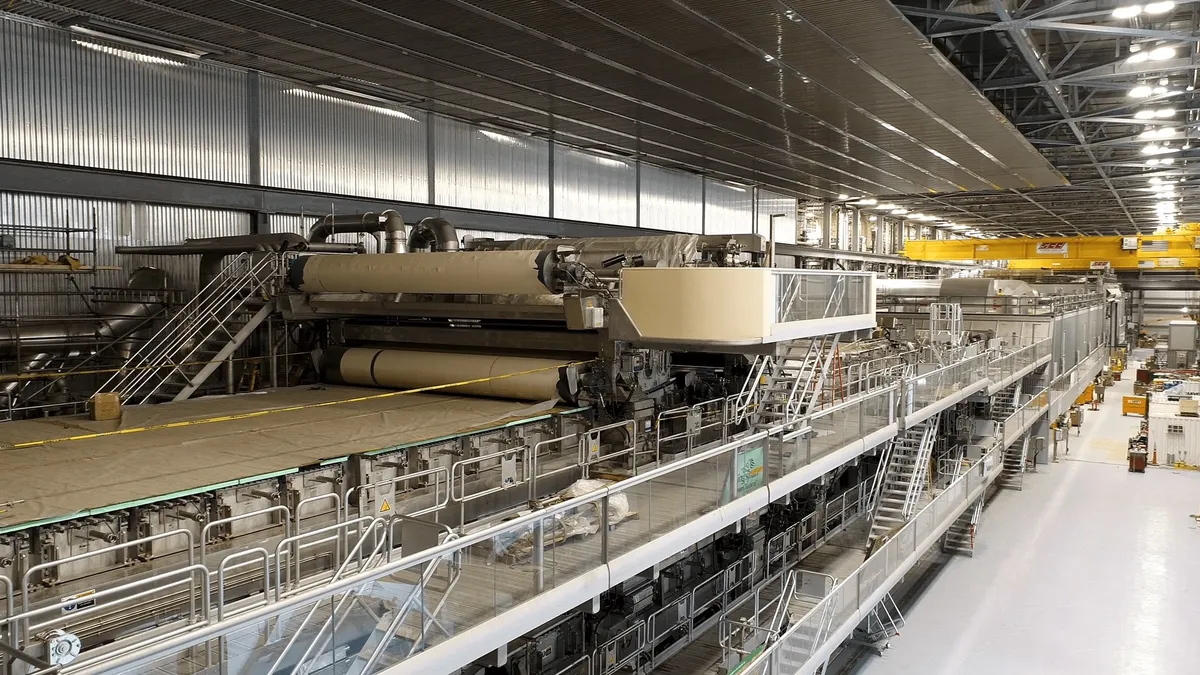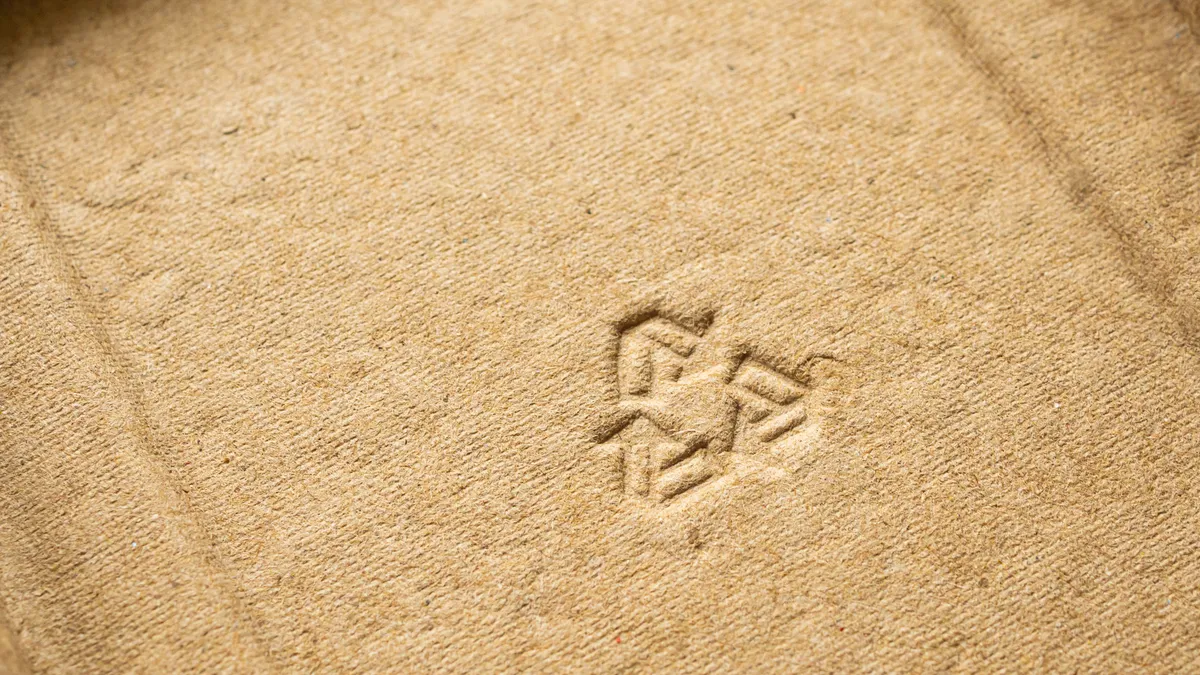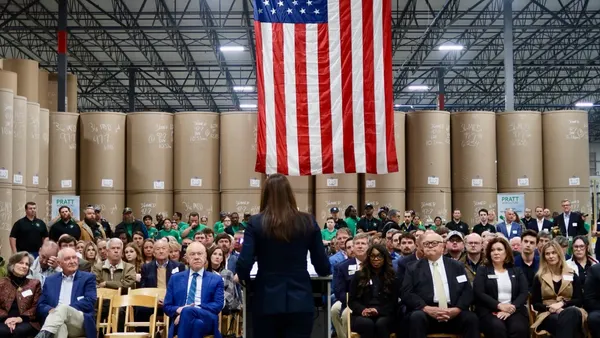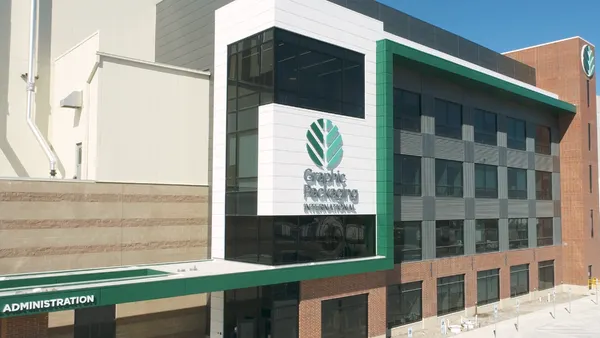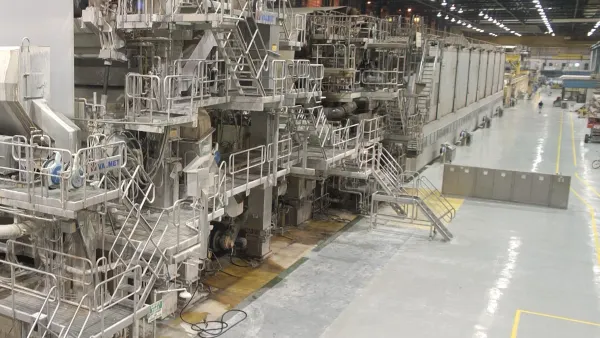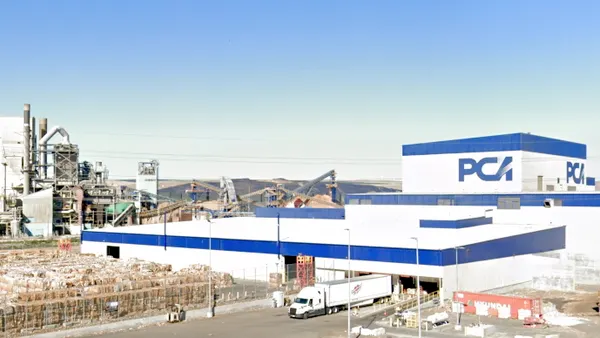Dive Brief:
- Graphic Packaging International announced Wednesday it will permanently decommission its K3 coated recycled paperboard machine at its mill in Kalamazoo, Michigan. It’s one of three machines at that facility and is the company’s longest running.
- The company idled K3 in July, ahead of the previously announced schedule. Earlier this year, the company said it would invest $1 billion to build a new CRB facility in Waco, Texas, and production would ramp up in 2026. Michael Roxland, senior paper and packaging analyst at Truist Securities, said in a Wednesday analysis that GPI had originally indicated it would close K3 after Waco opened in 2026.
- The K3 closure aligns with GPI’s CRB optimization plan, first announced in 2019, and supports more efficient resource use, the company said. GPI does not expect the permanent shutdown to impact the $1.9 billion in adjusted earnings before interest, taxes, depreciation and amortization it’s projected for 2023.
Dive Insight:
Graphic Packaging International began operations at its new $600 million CRB machine, K2, in Kalamazoo early last year after nearly two years of construction. Executives have repeatedly said during earnings calls this year that K2 is exceeding quality and yield expectations, and they bumped up annual production estimates from 500,000 tons to 550,000 tons. Executives said the extra capacity allowed them to accelerate existing plans to close higher-cost mills, including the June closure of a CRB mill in Iowa.
“We continue to optimize our network for greater efficiency, investing in new technology while bringing down higher cost capacity. With K2 exceeding annual production expectations, and the important flexibility we have maintained with Middletown [Ohio] and East Angus [Quebec], we are able to decommission the higher cost K3 machine,” a GPI spokesperson said via email.
The company’s paperboard operations in Kalamazoo have come under fire, facing accusations that the plant and a neighboring municipal wastewater treatment plant released what plaintiffs in a $600 million federal lawsuit against the company call toxic gas. Nearly four dozen plaintiffs brought the lawsuit on behalf of nearly 8,000 people who claim harm from odors from the facilities. GPI and state officials have requested that the lawsuit be thrown out, with the lawyer for the city of Kalamazoo, an entity also named as a defendant, calling plaintiffs’ claims unfounded.
The GPI spokesperson said the early closure of K3 is not related to the lawsuit, saying instead it is part of the years-old optimization plan and follows K2’s achievements. The spokesperson also said the closure would not affect the company’s overall CRB production capacity, due to other facilities meeting or exceeding production expectations as well as the current demand environment.
“[W]e are managing production to the demand environment, with the demand environment this year seeing impacts from widely documented inventory normalization,” the spokesperson said.
Employees who worked with the K3 machine are transitioning to other responsibilities at the Kalamazoo facility, the GPI spokesperson said.
Truist’s Roxland said the K3 closure appears to be related to managing supply and demand while ensuring price stability in the CRB space, and that other boxboard producers are making similar moves.


